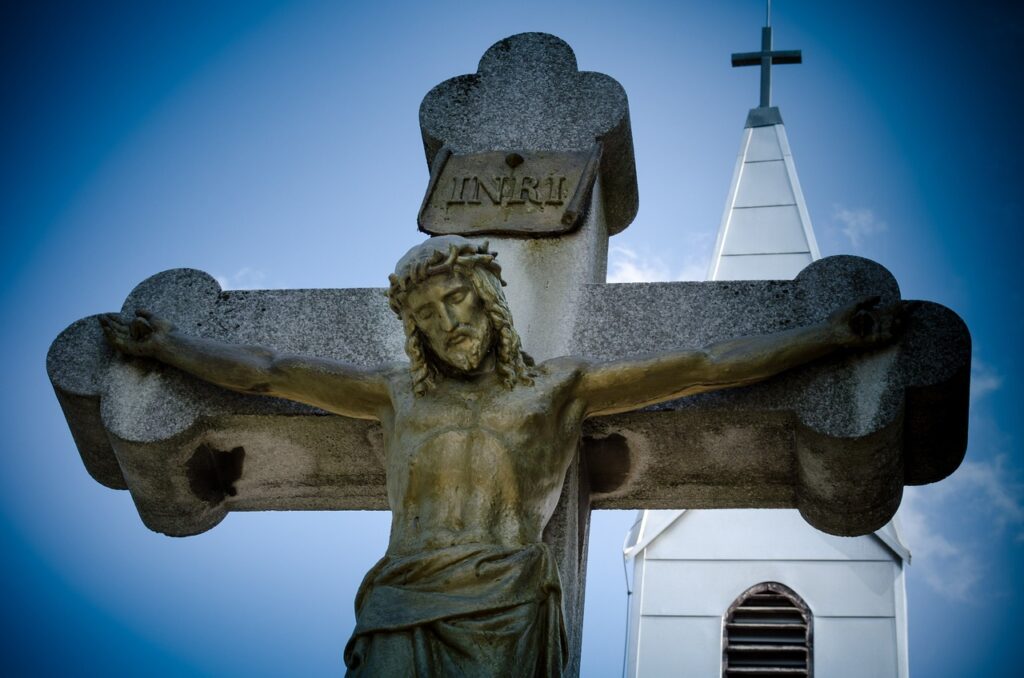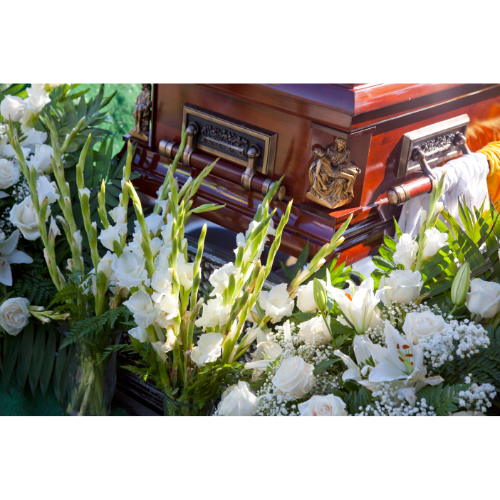If you are planning a special event that requires a religious officiant or celebrant, you may be wondering about the various options available to you. Whether it is a wedding, a baptism, or another religious ceremony, having the right person to conduct the service is essential. In this article, we will explore the different choices you have when it comes to selecting a religious officiant or celebrant, ensuring that your event is personalized and meaningful. From clergy members to interfaith ministers, we will cover everything you need to know to make the best decision for your occasion.

Religious Officiants
If you’re considering a religious wedding ceremony, one of the first things you’ll need to decide is who will officiate the service. There are various options available to couples seeking a religious officiant or celebrant, each with their own unique qualities and qualifications. In this article, we will explore the different types of religious officiants and celebrants you can choose from, as well as provide guidance on how to arrange and book their services.
Ordained Ministers
Ordained ministers are individuals who have been authorized by a religious organization to perform religious ceremonies, including weddings. They typically have received formal training and hold a position of authority within their religious community. If you belong to a specific religious denomination, reaching out to an ordained minister from your own faith can be a meaningful way to incorporate your religious traditions into your wedding ceremony. Ordained ministers are often able to customize the ceremony to align with your specific beliefs and values.
Rabbis
Rabbis are Jewish religious leaders who possess deep knowledge of Jewish scriptures, traditions, and customs. They are qualified to officiate Jewish wedding ceremonies and are often recognized as spiritual guides within the Jewish community. A rabbi can help you create a wedding ceremony that reflects Jewish traditions, such as the signing of the Ketubah (a Jewish marriage contract) and the breaking of the glass.
Priests
For those who practice Catholicism or belong to other Christian denominations, a priest can serve as an officiant for your wedding ceremony. Priests undergo extensive theological training and are authorized by their respective religious organizations to administer sacraments, including marriage. They can guide you through the process of incorporating important elements of the Catholic faith, such as the exchange of vows, readings from Scripture, and the blessing of the rings.
Imams
Imams are religious leaders within the Islamic faith who have in-depth knowledge of the Qur’an and Islamic teachings. They are authorized to perform Islamic marriage ceremonies, also known as Nikah. If you and your partner are practicing Muslims, having an imam as your officiant will ensure that your wedding ceremony adheres to Islamic traditions. An imam can guide you through the recitation of the Nikah contract, the exchange of vows, and other important rituals.
Pandits
Pandits are Hindu priests who specialize in performing religious ceremonies and rituals. If you are planning a Hindu wedding, having a pandit officiate your ceremony will ensure the inclusion of important Hindu customs and traditions. A pandit can guide you through the recitation of Vedic mantras, the performance of sacred rituals, and the blessings of the deities. Their expertise ensures that the ceremony is conducted in accordance with the teachings of Hindu scriptures.
Interfaith Celebrants
If you and your partner come from different religious backgrounds or want to incorporate elements from multiple faiths into your wedding ceremony, interfaith celebrants can be an excellent option. These officiants specialize in crafting customized ceremonies that honor and incorporate the beliefs and traditions of both partners. They are skilled at navigating different religious traditions, ensuring the ceremony is inclusive and respectful to all involved. Interfaith celebrants can help you create a ceremony that reflects your unique love story and celebrates the merging of your diverse backgrounds.
Interfaith Officiants
Interfaith officiants are religious leaders or celebrants who have expertise in multiple religious traditions. They are adept at crafting ceremonies that incorporate elements from various faiths, allowing couples from different religious backgrounds to celebrate their love in a way that is meaningful to both partners. Interfaith officiants can guide you through the process of selecting readings, rituals, and symbols from each tradition and weave them seamlessly into a cohesive ceremony.
Humanist Celebrants
Humanist celebrants provide a non-religious alternative to traditional religious ceremonies. They focus on celebrating human values, ethics, and love without invoking specific religious beliefs or deities. Humanist ceremonies are often centered around the couple’s love story, shared values, and commitment to one another. A humanist celebrant can help you create a ceremony that reflects your personal beliefs while emphasizing the importance of love, inclusivity, and the human experience.
Spiritual Officiants
Spiritual officiants offer a middle ground between strictly religious and completely non-religious ceremonies. They embrace a more holistic and inclusive approach to spirituality, taking into account personal beliefs and values. Spiritual officiants can incorporate elements of mindfulness, meditation, or other spiritual practices into the ceremony. They work closely with the couple to ensure that the ceremony aligns with their spiritual journey and reflects their individual understanding of spirituality.
Religious Organizations
Religious organizations, such as churches, synagogues, mosques, temples, and Gurdwaras, often have their own officiants who can conduct wedding ceremonies. If you are a member or have a strong connection to a specific religious organization, reaching out to them for an officiant can be a natural choice. These officiants are often deeply knowledgeable about the specific religious traditions, rituals, and customs associated with the faith community they serve.
Churches
Churches serve as places of worship for various Christian denominations, and they usually have ordained ministers or priests who are authorized to conduct wedding ceremonies. If you and your partner belong to a church congregation, the resident minister or priest can be a meaningful choice to officiate your wedding. They have extensive experience in leading worship services and can help you create a ceremony that reflects your shared faith and values.
Synagogues
Synagogues serve as Jewish places of worship and are equipped with knowledgeable rabbis who specialize in conducting Jewish wedding ceremonies. If you are affiliated with a synagogue or feel a connection to the Jewish community, having a rabbi from the synagogue officiate your wedding can bring a deep sense of tradition and community to your ceremony. They will be well-versed in Jewish wedding customs and can assist you in creating a ceremony that is authentically Jewish.
Mosques
Mosques are Islamic places of worship, and within them, imams lead congregations in prayer and perform religious ceremonies. If you and your partner are practicing Muslims or have a strong connection to the Islamic faith, having an imam from the mosque officiate your wedding can ensure that the ceremony is conducted in accordance with Islamic teachings. The imam can guide you through the recitation of the Nikah contract, the traditional wedding sermon, and other important Islamic wedding rituals.
Temples
Temples are places of worship for various Eastern religions, including Buddhism, Hinduism, and Sikhism. Within these temples, pandits or priests are often available to officiate religious ceremonies, including weddings. If you are planning a wedding that aligns with the traditions and customs of Buddhism, Hinduism, or Sikhism, having a temple officiant can ensure that your ceremony is conducted with utmost authenticity and respect towards your chosen religion.
Gurdwaras
Gurdwaras are Sikh places of worship, and Sikh weddings, known as Anand Karaj, are usually conducted within these sacred spaces. Gurdwaras have dedicated officiants, known as granthis, who are trained in Sikh religious rituals and the recitation of Gurbani (Sikh scriptures). If you and your partner are Sikh or plan to have a Sikh wedding, having a granthi from the Gurdwara officiate your ceremony will ensure that you honor Sikh customs and traditions. They can guide you through the recitation of the Sikh marriage hymns, the Laavan, and other essential wedding rituals.
Independent Celebrants
For couples who prefer a more personalized approach to their wedding ceremony or do not have a strong connection to a specific religious organization, independent celebrants can be an ideal choice. These celebrants are not associated with any particular religious group but have the expertise to craft and conduct unique wedding ceremonies that reflect your beliefs and values.
Certified Celebrants
Certified celebrants have undergone professional training and certification in wedding ceremony creation and officiation. They are skilled in crafting personalized ceremonies that are tailored to a couple’s unique love story and values. Certified celebrants often spend time getting to know the couple and their preferences, allowing them to create a ceremony that truly reflects their personalities and wishes. Whether you desire a non-religious or interfaith ceremony, a certified celebrant can help you curate the perfect wedding experience.
Non-denominational Celebrants
Non-denominational celebrants are open to working with couples from various religious backgrounds or no religious affiliation at all. These officiants are adaptable and can help you create a ceremony that embraces both non-religious and religious elements, depending on your preferences. Non-denominational celebrants focus on the couple’s love and commitment to one another, ensuring that the ceremony is meaningful, inclusive, and respectfu

